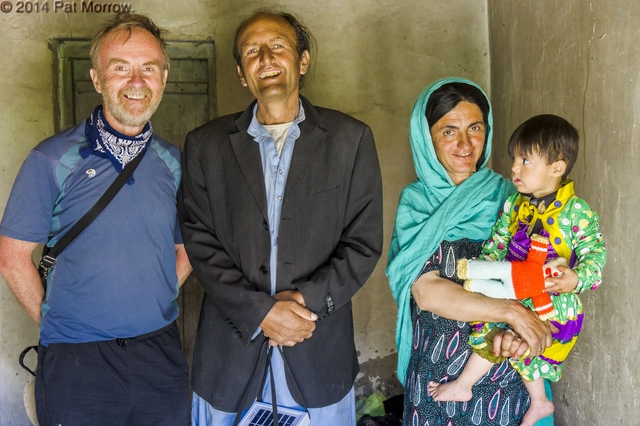 In June/July 2014, Dr. Bill Hanlon, Founder and Medical Director of Basic Health International Foundation returned to Hunza in north east Pakistan to build on existing medical programs and expand it’s work into more remote areas such as the Shimshal summer pastures at 4700m, Chipursan Valley (3500m), Misgar Valley (3075m) and the Batura Glacier (Yashpirt 3302m) summer pastures.
In June/July 2014, Dr. Bill Hanlon, Founder and Medical Director of Basic Health International Foundation returned to Hunza in north east Pakistan to build on existing medical programs and expand it’s work into more remote areas such as the Shimshal summer pastures at 4700m, Chipursan Valley (3500m), Misgar Valley (3075m) and the Batura Glacier (Yashpirt 3302m) summer pastures.
The work was done with the cooperation and support of the Karakorum Area Development Organisation (KADO) and the HiMaT Indigenous Leadership and Development Program/Michael and Judie Bopp
Dr. Hanlon was accompanied by internationally renowned Canadian photographer and mountaineer Pat Morrow who documented the trip with video and still images.
The objective of BHI is to work with local communities and organisations (LSOs) to improve the quality of health care in remote communities across the region.
The focus of this trip was to travel into the very remote areas of Shimshal Pass (Pamir at 4700m), Batura Glacier summer pasture, the far end of Chipursan Valley and Misgar Valley in upper Hunza and carry out health assessments of all nomads working with their animals in the pasture and provide some health education in the field.
The long term objective is to establish an effective health care link between people in the remote pasture areas, local village community health centres and regional specialist secondary and tertiary care services.
To better understand the current health issues facing nomads living in such remote areas, I felt it was important to spend some time with the nomads in their work environment.
These areas had never been visited by a physician. Traditionally mostly women live high in the summer pasture of Shimshal Pamir (4700m). They travel up in May each year and return end of September/early October. During this time, they have no access to any form of medical care.
Traditionally a group of men from the lower Shimshal villages spend winter in the pasture areas without any access to healthcare and surviving in difficult winter living conditions.
BHI is working on establishing e-health linkages between remote village community health centres and regional specialist services. The hope is that these linkages will expand to support people working with their animals in the more remote pasture areas with the help of satellite technology.
Ideally, a person in the early stages of acute appendicitis working in the pastures could be given early advice and support to come down to the nearest surgical service. Unfortunately a shepherd died last year in the Pamir from acute appendicitis. He did not have access to health care.





